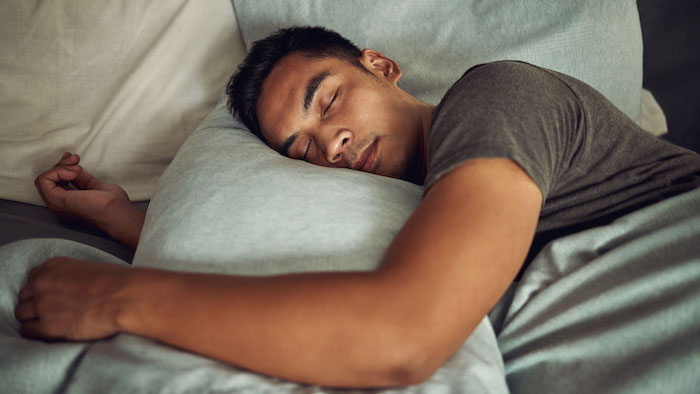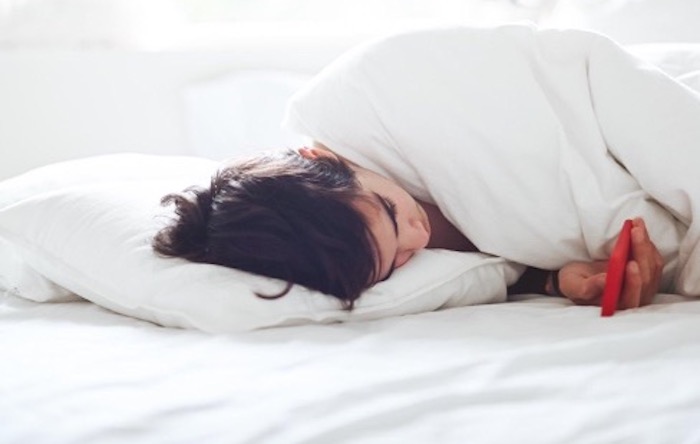Why It’s Important to Rest Up - Tips to Improve Your Sleep Quality

Amidst our hectic and very busy lifestyles, sleeping is the most natural and effective way to rest, regenerate energy, and recharge your entire body.
Sleep is very important for every human being. When you get ample time for sleep (7 to 9 hours of sleep per night for adults), it ensures that you will be ready to take on the activities ahead of you the next day, whatever they may be—work, family, or other responsibilities.
However, for some people, getting enough quality sleep may not be so easy. An estimated 50 to 70 million Americans suffer from chronic sleep disorders and wakefulness, hindering daily functioning and adversely affecting their health and longevity. It’s not because of hectic schedules and busy lifestyles that they don’t get enough quality sleep, but because sleep eludes them for some reasons that they may not fully understand – especially at night.
But, getting enough sleep every day is important as it directly affects your physical and mental health. If you are short of sleep, there is a high chance that you will be less productive and a lot more cranky, not to mention you may suffer potential serious problems associated with chronic sleep deprivation such as high blood pressure, diabetes, heart attack, heart failure, and stroke.
Other potential problems of no or low quality sleep include obesity, reduced immune system function, lower sex drive, and depression. The good news, however, is that there are ways to take charge of your sleeping habits and get better quality sleep each night. In this article, we highlight some top tips to improve your sleep quality so you get better sleep and rest up adequately.
Let’s dive in…
Top Tips to Improve Sleep Quality and Get Better Sleep

If you are tired or tossing and turning on your bed and waiting for the magic spell of sleep to happen, take note and apply these tips to enjoy better sleep:
1. Quit your bad lifestyle habits
Do you eat junk food every day? Do you often smoke cigarettes or drink alcohol? Do you consume caffeine more than you should? If your answer to any of these questions is “yes”, then you should quit the bad lifestyle habits if you want better sleep.
Instead, eat more healthy foods, control your alcohol intake, quit smoking, and cool it on the mid-day coffee. Basically, start living a more healthy lifestyle that includes consuming healthy diets and getting more physical exercises.
When looking to quit smoking, you can use different methods including using both a nicotine patch and gum to stave off the cravings. Whatever it takes to keep a healthy lifestyle, make sure you do it. Small incremental lifestyle adjustments will go a long way in ensuring you get quality and restful sleep each night.
2. Respect your body’s internal clock
Have you experienced feeling sleepy at the exact time for about a week? Or, do you struggle with falling asleep every day until almost 4 am in the morning before you can finally sleep? It may be caused by your body’s internal clock or the circadian rhythms.
The circadian rhythms are 24-hour cycles that are part of the body's internal clock running in the background to carry out and control essential body functions, including the sleep-wake cycle.
Because of circadian rhythms, the human body is capable of establishing a routine for your day-to-day activities, especially if you have been repeatedly following the same routine every day. To improve the quality of your sleep, tune your circadian rhythms and synchronize it with a schedule by following the same sleep routine each night.
So, if you decide to sleep at 10 pm, make sure to sleep at that exact same time every night. Keep this sleep schedule steady until your body gets used to it. You will then be pleasantly surprised that your body will naturally start to make you feel sleepy when your regular bedtime hour approaches, and you will fall asleep immediately you get in your bed at that time.
Avoid having irregular times when you go to bed to sleep, and instead maintain a regular sleep time each night to improve the quality of your sleep.
3. Prepare yourself before bedtime
About an hour or two before your bedtime or the time you go to sleep, make sure to avoid drinking coffee or other energy-infusing beverages. These types of beverages will only give you more energy and make it more difficult for you to fall asleep.
The body takes longer to rid itself of caffeine, per the American Academy of Sleep Medicine. So, instead of a cup of coffee, consider swapping that out for decaf coffee or herbal tea. If you really need to drink a warm beverage, you can also drink warm milk before going to bed.
It’s also best to not take a nap an hour or two before you go to sleep. Taking a long nap or a power nap a few hours before bedtime can also make falling asleep at night difficult. As much as possible avoid those things and prepare your body adequately well before your bedtime.
4. Keep the room dark when sleeping
Your body will be more relaxed and prepared for sleeping if you are not exposed to too much light. Darkness is a natural signal to your body that it is time to rest.
Switch off the lights in your bedroom when sleeping, or dim them as much as possible during bedtime.
If you are a night owl, work at night and sleep during the day, buy some black-out curtains so you can trick your body that it's nighttime even when the sun is out.
A dark room will help you sleep more peacefully.
5. Avoid using gadgets in bed

Modern technology can be very helpful and necessary, but it can also negatively affect your sleep when used in bed during bedtime. Having a tech gadgets screen on, emitting lights, and showing various distractions while you are in bed and want to sleep is not a good practice.
Scrolling social media, watching movies, or otherwise using your tech devices while in bed keeps your mind stimulated and awake, making it harder to fall asleep later. Moreover, the blue light emitted from device screens is fine for daytime use, but it not so great at night.
Blue light strains and tires the eyes at night, and hinders you from getting quality sleep. Just shut down the screens and put your devices away when going to bed. Don’t use gadgets in bed before bedtime to improve the quality of your sleep and get better rest for your body.
6. Manage your anxieties and worries
One of the things that will surely disturb your sleep is worry and anxiety. While it is easier said than done, managing your anxieties and worries is important to get a good night's sleep.
If you are worried about an upcoming meeting or pitch, or you are dealing with a personal problem, chances are you will stay awake at night thinking of solutions to your problems and the best ways to ensure that everything will be okay. This is how your sleep suffers.
In reality, staying up all night worrying and stressing about your problems is just adding fuel to the fire. It’s best to give your body and mind some much-needed rest, so that you can re-fresh and re-energize to face your challenges with a fresh and well-rested body and mind.
Some ways to manage your stress, worries, and anxieties include taking time-off, practicing yoga or guided meditation, eating well-balanced meals, working out, performing physical activities, and getting enough sleep each night.
7. Stay physically active the whole day
Staying active throughout the day and exercising daily strengthens your body muscles and helps you stay physically fit. It will make you feel energetic, happy and you will have better physical and phycological health.
Even if it is your day off at work, find something to do that gets you physically moving, where you will not be sitting or lying down the whole. This will ensure you stay engaged and ready for rest when your time for sleep comes later in the evening.

![9 Tips for Managing Your Online Writing Projects Efficiently [node:titile]](/sites/default/files/styles/thumbnail_rectangle/public/open-book-laptop-online-writing-tips.jpeg?itok=iq4PIT7b)


















